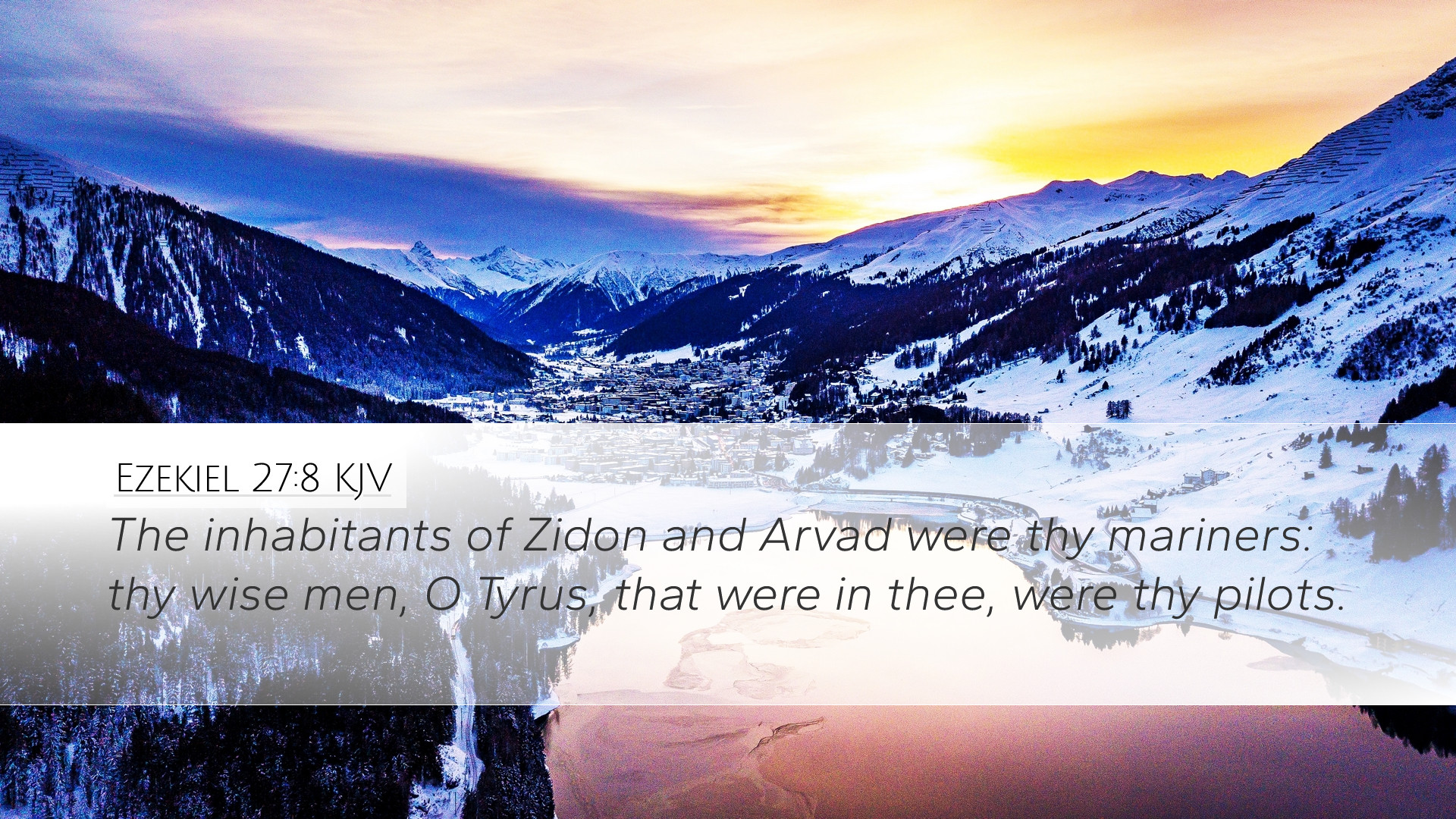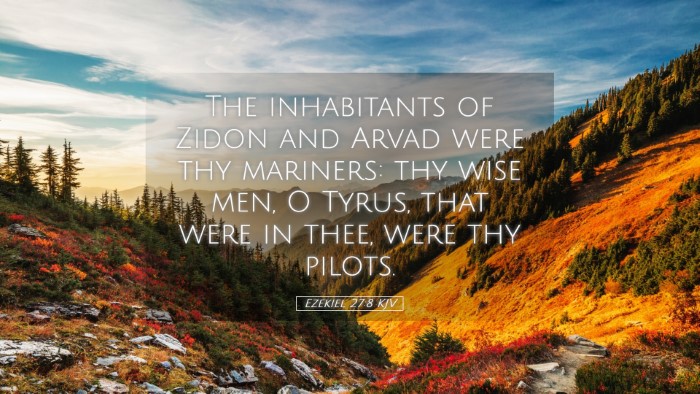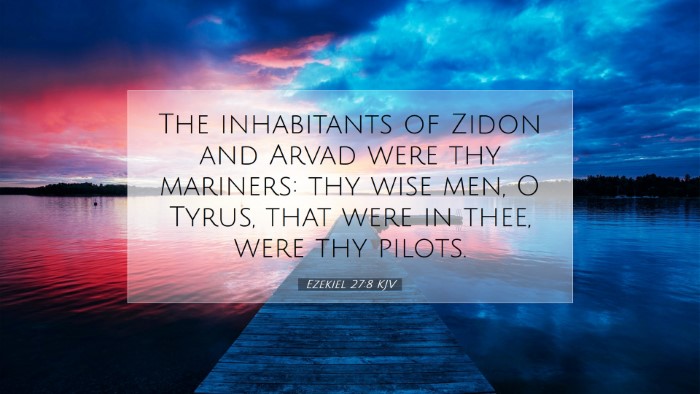Ezekiel 27:8 - Commentary and Reflections
Verse Reference: Ezekiel 27:8
The verse reads: "The inhabitants of Sidon and Arvad were your oarsmen; your skilled men, O Tyre, were the mariners." This verse is a part of a larger prophecy against the city of Tyre, highlighting its extensive trade network and maritime power.
Overview of the Context
The Book of Ezekiel, attributed to the prophet Ezekiel, addresses not only the fate of Israel but also the judgments against foreign nations. Tyre, as a prominent city, exemplifies the pride and eventual downfall of nations that transgress divine boundaries.
Commentary Insights
Matthew Henry's Commentary
Matthew Henry emphasizes that the merchants of Tyre depended heavily on skilled labor from surrounding areas, including Sidon and Arvad. He notes:
- The Unity of Maritime Power: The reference to Sidon and Arvad illustrates the collaborative nature of Tyre's maritime operations, highlighting the interconnectedness of regional powers.
- Arrogance and Dependency: While Tyre was prosperous, its dependence on foreign manpower reveals a superficial strength that ultimately contributed to its downfall.
Albert Barnes' Notes on the Bible
Albert Barnes provides a detailed analysis of the societal structure of Tyre, stating that:
- Trained Workforce: The skilled men and oarsmen depicted here are essential for the city’s seafaring success, showing that Tyre's affluence was not merely by chance but through careful cultivation of maritime skills.
- The Role of Sidon and Arvad: He further elucidates that Sidon, being an ancient city, and Arvad, a fortified island, both played crucial roles, showcasing the regional prowess of these locations.
Adam Clarke's Commentary
Adam Clarke provides a rich socio-historical context surrounding Tyre's maritime operations:
- Economic Significance: Clarke points out that the economic activities facilitated by these oarsmen were vital to Tyre's wealth, which made it a dominant nautical force in the ancient world.
- The Fragility of Power: Clarke warns of the fragility of this maritime power, as it is still subject to God's will, indicating that no earthly power can stand before the divine will.
Theological Implications
Ezekiel 27:8 serves as a reminder of the limitations of human strength and the transitory nature of worldly power. The collaboration with Sidon and Arvad not only serves as an illustration of Tyre's might but also stands as a cautionary tale about the dangers of pride and reliance on human resources alone.
- Human Collaboration: This verse illustrates the importance of collaboration. In ministry and service, teamwork often brings about more significant results than individual efforts.
- Divine Sovereignty: Regardless of the strategic advantages and skilled labor, Tyre’s ultimate fate is a testament to the sovereign plans of God over human endeavors.
Practical Applications for Today
For pastors, students, and theologians studying this passage:
- Assess Dependence: Reflect on areas where dependence on worldly systems may overshadow reliance on God’s power.
- Embrace Collaboration: Encourage collaboration within the church body, recognizing the diversity of gifts as essential for achieving the mission of the church.
- Preach Humility: Use the pride of Tyre as a teaching point on the necessity of humility before God, reminding congregants that success is found in reliance upon Him rather than on external alliances.
Conclusion
In summary, Ezekiel 27:8 illustrates not just a historical account of Tyre and its collaborators but serves as a theological beacon for modern readers. The insights drawn from public domain commentaries provide rich material for deep reflection, bolstering the foundations of faith amidst the realities of temporal power and human limitations.


